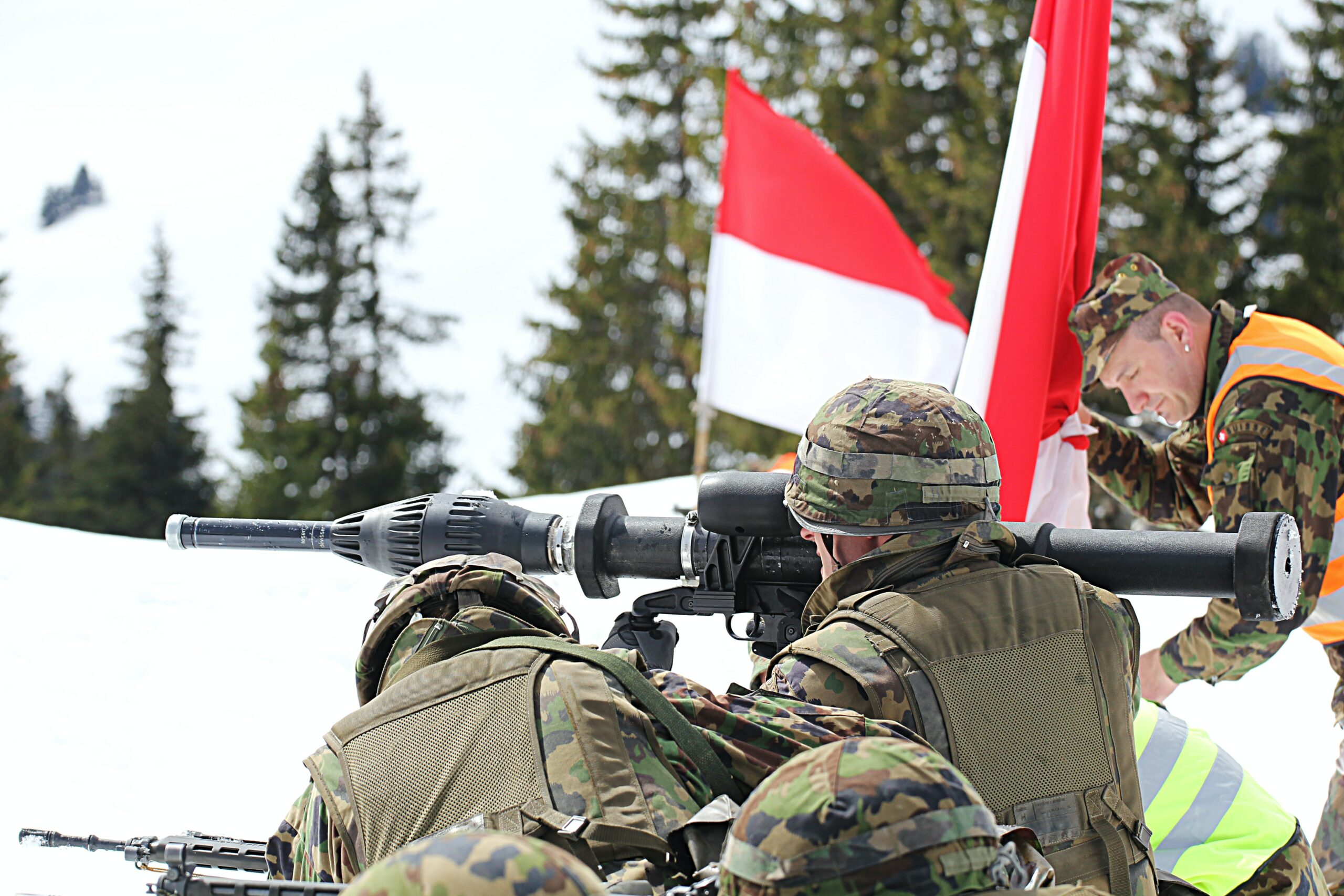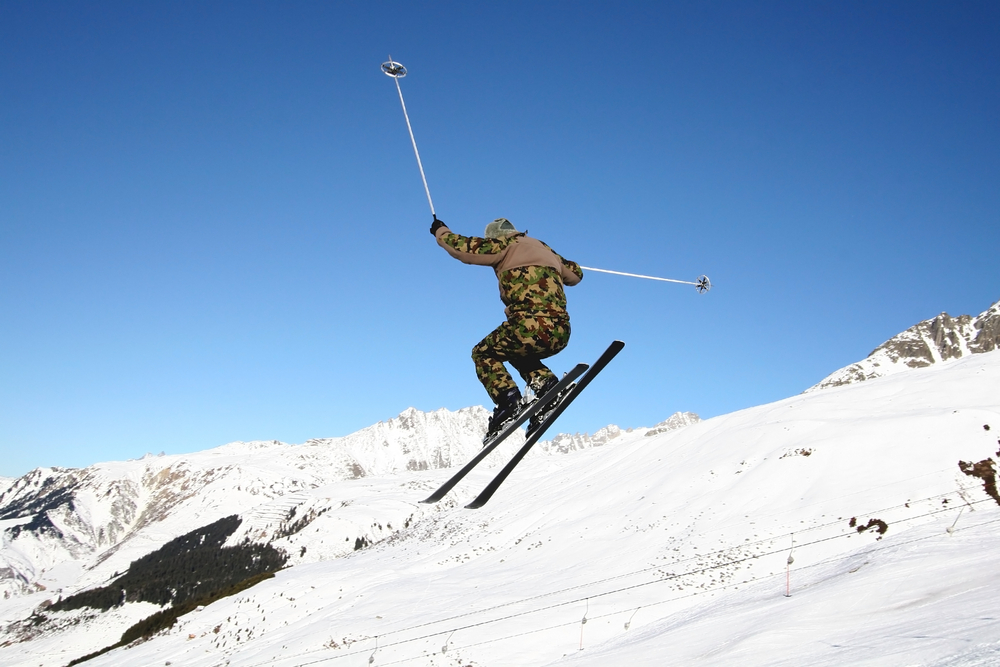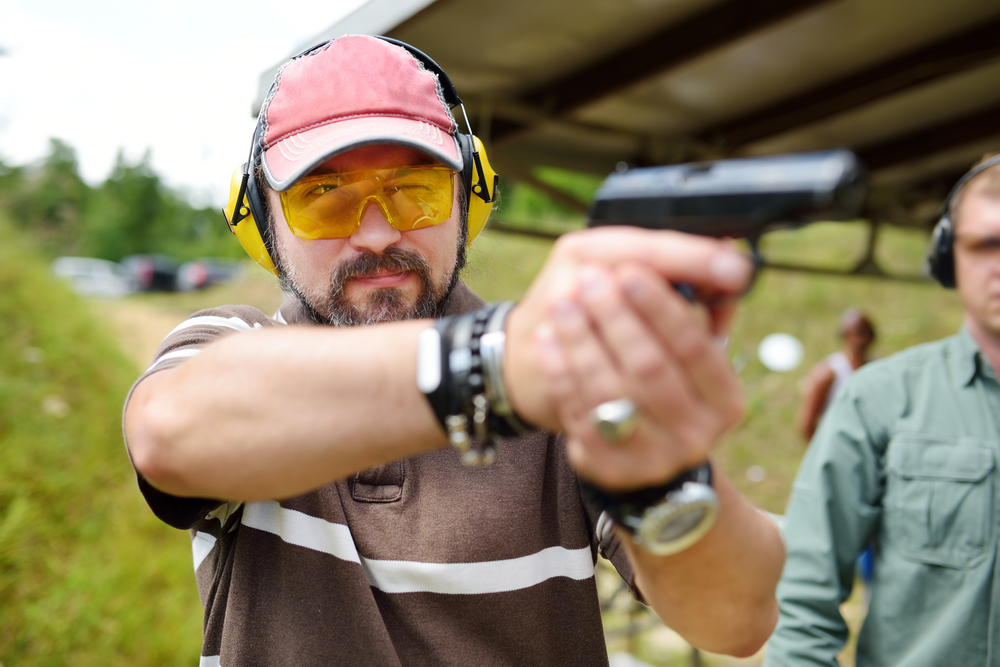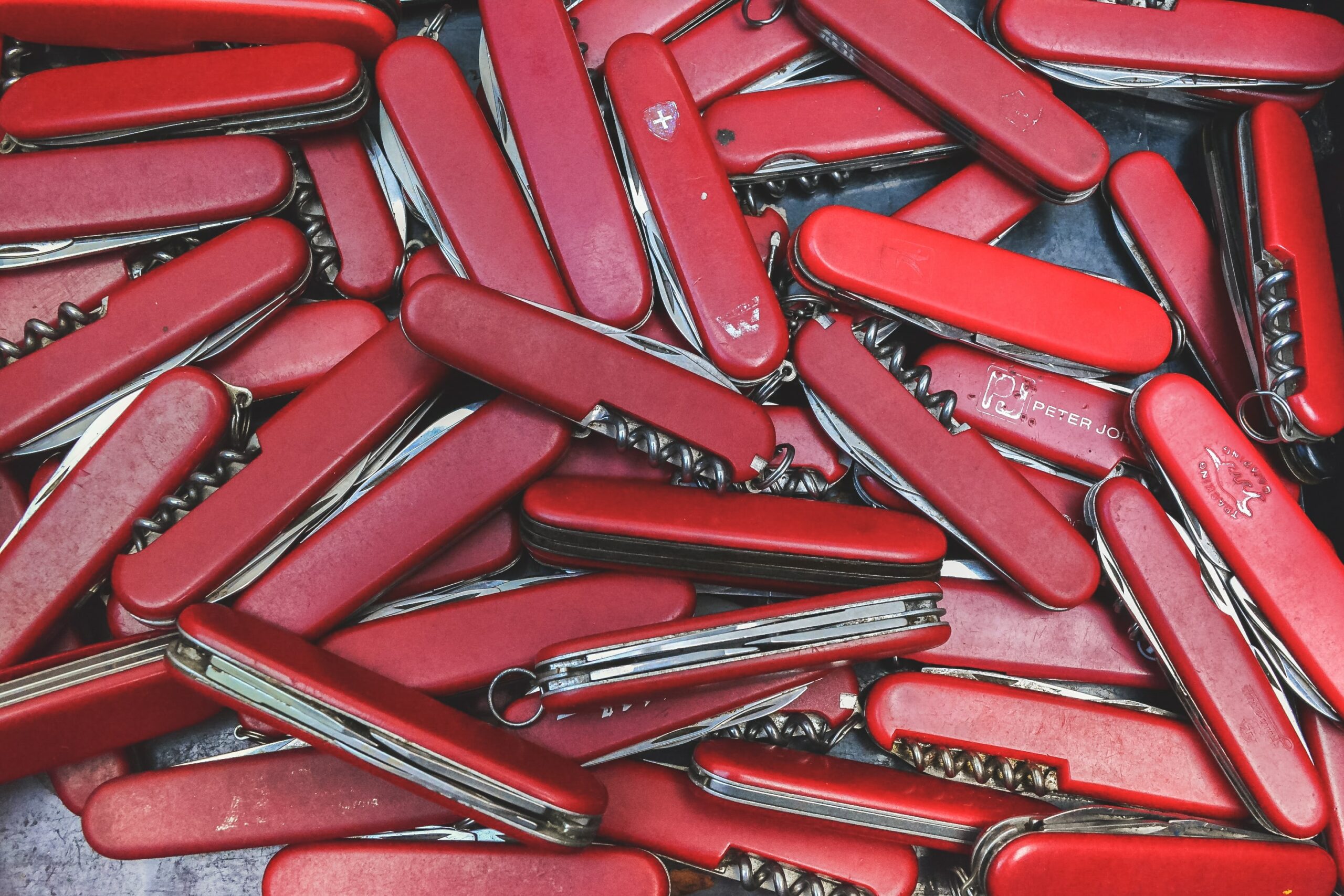Tue, Mar 8th 2022
Switzerland has one of the highest rates of gun ownership in the world. And yet: The country’s murder and mass shooting rate is practically zero. What makes this possible and how can other countries learn from the Swiss example? UltraSwiss reporter Tasia Abbatecola sits down with a Swiss gun expert.

Swiss military take part in a training session near Château d’Oex, using bazooka style weapons.
In the days since Russia invaded Ukraine, discussions surrounding arms and European defense plans have circulated more fervently in an effort to understand what would happen should Russia continue on its violent path.
It might shock some to discover that Switzerland is one of the most-armed countries in Europe, considering that it is a neutral country. That is, an “armed neutral country;” meaning that Switzerland is politically neutral, but allowed to arm and defend itself from invaders. For this reason, military service is compulsory in Switzerland and the country maintains a high level of defense at all times. Members of the military get to keep their weapons at home — which is part of a larger tradition of keeping civilians armed that has kept Switzerland safe during two world wars, historians say.
No wonder they don’t want to give up their guns right now.

Swiss military men and women learn how defend their country on all topographies. It is not uncommon to see military training sessions being conducted on some of the best ski slopes in the world.
Military service is mandatory
All men between the age of 18-34 have to enlist into the Swiss military as long as they’re fit for service. According to Statista, there’s also a growing number of women who voluntarily join the army. In 2021 there were more than 1,700 women who chose to enlist. Both men and women receive intense mandatory training at the age of 18 and are considered part of the Swiss army until the age of 34. In between those years, the military personnel refresh their skills with short, mandatory training sessions.
All military personnel are equipped with a Swiss Army gun. For the whole duration of their military service – so until they’re 34 years old – this weapon is theirs and is usually kept at home. Once they have completed the mandatory military term, they have the option to apply for a gun owner license and then buy their service weapon from the army. To ensure safety however, it is recommended to keep the barrel separate from the rest of the gun. This is to prevent accidental shootings and to make the gun useless for anyone who would try to steal it.

Children as young as five begin learning how to properly handle guns at Switzerland’s gun clubs.
Shooting is part of Swiss sporting traditions
Although the military is frequently the first place Swiss people are introduced to guns, it’s not the only one.
“The Schützenvereine (gun clubs) have a long tradition in Switzerland that dates back to the 14th century,” explains Peter Nussbaumer, administrator at the gun club ‘Pistolenschützen Ägerital – Morgarten.’ “They regularly offer workshops for adolescents which will be the first time those young people get to hold a gun,” he adds.
For Nussbaumer, those workshops were his introduction into the shooting world. Schützenverein members practice their shooting skills on targets and sometimes compete against each other. Traditionally the Schützenvereine were there to protect the cities in case of an attack. Nowadays shooting is simply seen as a sport – much like football.
“Shooting is not really a controversial topic within the Swiss population. Most people understand it’s just a hobby,” Nussbaumer explains.

The Swiss Army is known around the world for their incredible pocket knives containing, yes, a wine opener.
So many guns, so little violence
There are about two million privately owned guns in Switzerland in a population of about 8.3 million people — a rather high rate globally. Nonetheless there have only been only six mass shootings in Switzerland in the last 110 years (meaning four or more people were killed). This is why Switzerland has become a common example used by proponents of the NRA to point out that a high rate of gun owners doesn’t automatically lead to more mass shootings. So then, why is there so much more violence in the U.S. compared to Switzerland? According to experts, here are a few possible reasons.
1. The Swiss use guns for defending their country.
The reasons people have to buy a gun are manyfold.
“I don’t know the motivations a gun owner joining the Schützenverein has, but I can assure you that if you try to buy a gun in Switzerland because you want to protect yourself, you won’t get far,” says Nussbaumer. When Swiss men and women keep army rifles at home, it is usually seen as a way to protect the country should it ever be attacked. U.S. citizens, on the other hand, report buying guns to protect themselves from enemies within the country’s borders, according to Gallup polls.
2. The Swiss know how to handle weapons.
Swiss people don’t just get a gun shoved in their hand without explanations. Everyone in the military gets in-depth training on how to use a weapon as well as how to properly store it. This education can prevent a lot of accidental shootings.
3. Gun sellers follow strict procedures.
If you want to buy a gun in Switzerland you’ll have to undergo a lengthy procedure. Whether you’ll get the gun permit or not, is always decided on a local level and will be monitored by the cantonal police. To apply for a gun license you have to be at least 18 years old and have no criminal record and you’ll have to undergo a thorough identity check. The police are also known to consult psychiatrists when deciding whether to approve or deny a permit.
4. Swiss don’t turn to guns for solving societal conflicts.
If you were to ever use a gun in Switzerland to solve a personal or societal issue, you’d probably walk away with more problems than solutions.
“There is just no incentive to use a gun. We have plenty of effective legal remedies one can use to either protect themselves or even to make a stand,” says Nussbaumer on the topic. Especially members of a Schützenverein would never think of using a gun to solve issues.
“Whenever someone uses a gun in a negative way, it harms the weapon’s image and therefore us and our hobby. We don’t want our guns to be taken away just as much as a cyclist wouldn’t want to lose their bicycle,” he adds.
Nussbaumer makes a very good last point: The problem is never the gun itself. It’s always the person holding the gun.
